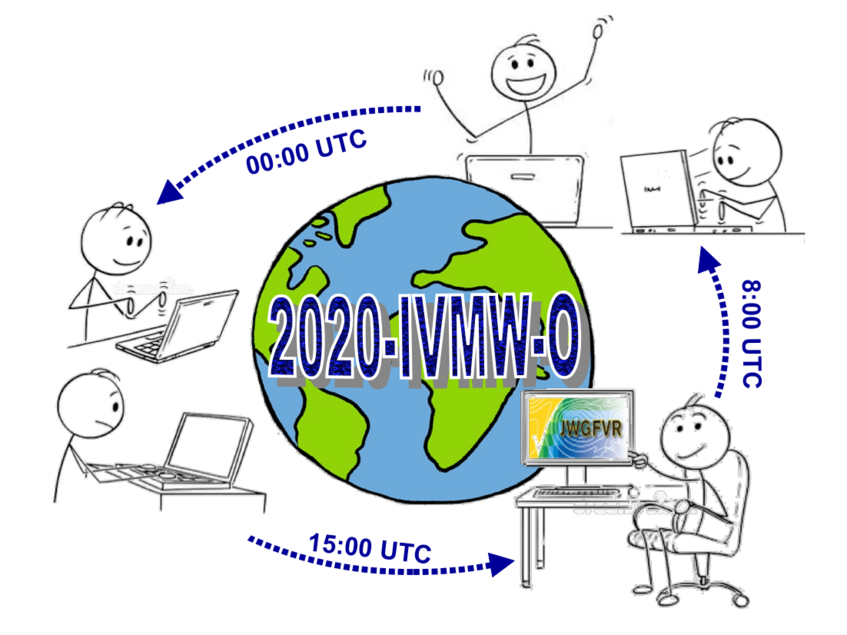
November 2020 around-the-clock
International Verification Methods Workshop Online (2020-IVMW-O)

The November 2020 around-the-clock International Verification Methods Workshop Online (2020-IVMW-O) is an outreach activity of the WWRP/WGNE Joint Working Group on Forecast Verification Research (JWGFVR). The workshop spans two weeks, from the 9th to the 13th and from the 16th to the 20th of November 2020, and consists in 2-hour online daily sessions, with live-stream presentations and discussion. This virtual event intends to fill the gap between the 7th and 8th International Verification Methods Workshop, since the latter has been postponed due to the COVID-19 pandemic.
The sessions are staggered across different time-zones in order to accommodate presenters from different countries around the Globe, while maintaining the verification discussion spinning around-the-clock. The sessions are by design limited to two hours per day, in order to enable attendance without compromising daily regular (home-based) work flow. Participation is only for registered attendees. All presentations are made available to registered attendees one week prior the event. Live-stream presentations and discussion are performed online via MS Teams.
The goal of the workshop is to discuss recent aspects of verification research and keep the research community up-dated on new verification practices, as applied to different types of weather forecasts and environmental predictions, on all spatial and temporal scales, from weather and sub-seasonal to seasonal and decadal, as well as for long climate projections. Participants are welcome from operational, research and forecast-user communities.
The workshop will include keynote talks along with contributed presentations. Abstracts are solicited on all aspects of verification methodology. Note that the focus of abstracts and presentations should be on the methodology, rather than application of the methods to specific datasets. Subjects of interest include, but are not limited to:
- physical process diagnostics;
- error tracking;
- spatial verification methods;
- verification of high impact weather and extremes;
- use of alternative observations;
- representativeness and observation uncertainty;
- user-oriented verification and estimation of forecast value;
- verification of probability and ensemble forecasts;
- inference and properties of verification methods;
- verification tools and software;
- verification practices in operational environments.
Contributions from the World Meteorological Organization (WMO) endorsed High Impact Weather (HIW), Polar Prediction Project (PPP) and Sub-seasonal to Seasonal prediction project (S2S) are particularly encouraged.
